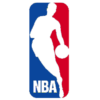When comparing the compatibility and usability of a sportsbook’s mobile app and website, several factors come into play:
- Compatibility:
- Mobile App: A well-designed mobile app should be compatible with various devices and operating systems, such as iOS and Android. It should offer a seamless user experience across different screen sizes and resolutions, ensuring compatibility with smartphones and tablets.
- Website: A sportsbook’s website should also be compatible with a wide range of devices and web browsers. It should be responsive, meaning it adjusts its layout and functionality based on the user’s device, ensuring optimal viewing and interaction experience on desktops, laptops, tablets, and smartphones.
- User Interface (UI):
- Mobile App: Mobile apps typically offer a more streamlined and intuitive user interface tailored for touch-based interactions. They often feature simplified navigation, easy access to key functions, and optimized layouts for smaller screens.
- Website: While websites offer more screen real estate, they may have a more complex UI compared to mobile apps. However, a well-designed website should still provide intuitive navigation, clear organization of content, and easy access to betting markets and features.
- Features and Functionality:
- Mobile App: Mobile apps may offer additional features optimized for on-the-go betting, such as live betting, push notifications for game updates, quick bet placement, and seamless integration with mobile payment methods.
- Website: The website typically offers a broader range of features and functionalities compared to the mobile app. It may include advanced betting tools, detailed statistics, live streaming options, and comprehensive account management features.
- Performance:
- Mobile App: A native mobile app tends to offer faster performance and smoother user experience compared to a mobile website. It can leverage device-specific capabilities and resources, such as hardware acceleration and local storage, to deliver faster loading times and better responsiveness.
- Website: While modern websites can provide a fast and responsive experience, they may be more susceptible to performance issues such as slower loading times, especially on mobile devices with limited processing power or slower internet connections.
- Updates and Maintenance:
- Mobile App: Mobile apps require regular updates to maintain compatibility with the latest operating system versions and security patches. Users need to download and install updates from the respective app stores.
- Website: Websites can be updated and maintained more easily by the sportsbook’s development team. Users typically don’t need to perform manual updates, as changes are implemented server-side and reflected immediately.
Overall, both the mobile app and website should offer a user-friendly experience, but the choice between them may depend on factors such as personal preference, device compatibility, and the specific features and functionalities offered by each platform. Some users may prefer the convenience of a mobile app for on-the-go betting, while others may prefer the versatility of a website for accessing additional features and information.







